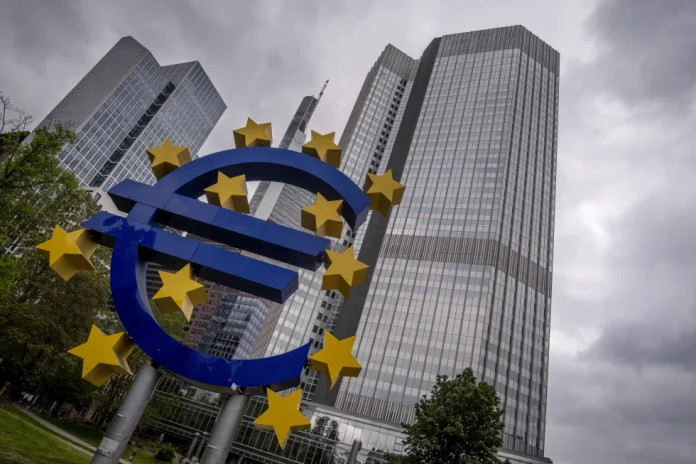🇪🇺 ECB Likely to Hold Interest Rates Steady
Inflation is back under control, and the European economy is weathering Trump’s tariff onslaught better than expected. These developments are among the key reasons the European Central Bank is likely to keep its benchmark interest rate unchanged on Thursday.
🇺🇸 Contrast With the US Federal Reserve
While the ECB stands pat, the US Federal Reserve has left the door open for a possible rate cut at its Sept. 17 meeting.
📊 Eurozone Growth Amid Tariff Pressures
The 20 euro-using countries — under the ECB’s monetary policy — recorded 0.1% growth in the second quarter compared to the previous one. Though modest, this pace avoids recession, even amid U.S. trade disruptions. Meanwhile, the S&P Global purchasing managers’ index for August came in at 51.1, signaling economic expansion.
🤝 EU-US Trade Deal Brings Some Relief
The EU executive commission negotiated a 15% tariff cap with the U.S. While higher than pre-Trump levels, the deal prevents steeper hikes and provides a level of certainty for ongoing trade.
💶 Interest Rate Outlook
For now, the ECB is expected to hold its benchmark deposit rate at 2%, guiding borrowing costs across the eurozone.
📉 Rate History and Inflation Goals
Following aggressive rate hikes from 2021 to 2023 to combat inflation, the ECB has begun lowering rates. Eurozone inflation in August stood at 2.1%, closely matching the ECB’s 2% target.
🇫🇷 France’s Fiscal Challenge
France’s political gridlock and a 2023 deficit of 5.8% of GDP have caused a rise in borrowing costs. If market pressure grows, the ECB could step in to buy French bonds — but only if France aligns with EU debt rules.
🎙️ Lagarde’s Balancing Act
“Lagarde will have to mince her words carefully this Thursday,” said Holger Schmieding, chief economist at Berenberg Bank. “She can’t hint at bailing out an unrepentant fiscal sinner, nor can she strike a tone harsh enough to alarm markets that still offer France the benefit of the doubt.”












